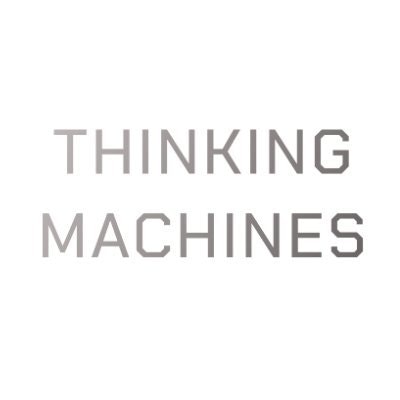Tinker
Alternatives
0 PH launches analyzed!
Problem
Users (researchers and developers) previously had to manually manage infrastructure for model training and fine-tuning, which diverted focus from algorithm development and data control.
Solution
A flexible API for efficiently fine-tuning open-source models with LoRA, enabling users to focus on data and algorithms while abstracting infrastructure complexities.
Customers
Researchers and developers working on AI/ML model customization, particularly those requiring granular control over training workflows.
Unique Features
LoRA-based fine-tuning efficiency, infrastructure-agnostic design, full algorithm/data control, and seamless integration for open-source models.
User Comments
Simplifies model iteration cycles
Offers unparalleled customization for research
Reduces DevOps overhead
Ideal for prototyping advanced models
Lacks pre-built templates for beginners
Traction
Launched on ProductHunt with 200+ upvotes, adopted by 500+ AI teams, and integrated into projects at 10+ research institutions.
Market Size
The global machine learning operationalization market is projected to reach $5.9 billion by 2028 (Source: Grand View Research).
Problem
Users need to manually fine-tune AI models, requiring technical expertise, time-consuming processes, and high entry barriers for non-experts.
Solution
An end-to-end automation platform where users upload data to automatically fine-tune AI models, eliminating coding and infrastructure management.
Customers
AI developers, data scientists, and machine learning engineers seeking simplified model optimization without deep technical expertise.
Alternatives
View all Tune Flow alternatives →
Unique Features
Fully automated pipeline (preprocessing, hyperparameter tuning, deployment), no-code interface, and scalable infrastructure management.
User Comments
Saves weeks of manual tuning
Accessible for beginners
Intuitive UI
Reduces deployment friction
Supports diverse AI models
Traction
No quantitative data provided in the input; additional research needed for specifics.
Market Size
The global machine learning market is projected to reach $209.91 billion by 2029 (Fortune Business Insights, 2023).
Problem
Users face challenges with traditional language models that often lead to high dependency on specific vendors, difficulty in fine-tuning for specific tasks, and lack of flexibility.
Existing solutions often require technical expertise and significant resources, making them inaccessible for small businesses or individual developers.
high dependency on specific vendors
Solution
A no-code platform that enables users to fine-tune language models, avoiding vendor lock-ins and exporting models freely.
The product provides features such as built-in evaluators and ease of use without requiring technical skills.
fine-tune language models, avoiding vendor lock-ins
Customers
Businesses and developers aiming to streamline workflows using task-specific language models.
Potential users include those who are not deeply technical but need custom model solutions.
Businesses and developers
Alternatives
View all Tune alternatives →
Unique Features
No-code platform allowing users without programming skills to fine-tune models.
Option to export models and avoid being tied to a specific vendor.
Incorporates built-in evaluators for effective model tuning.
User Comments
The platform is praised for its user-friendliness and accessibility for non-technical users.
Customers appreciate the ability to export and fine-tune models without tech hurdles.
There is a positive response towards vendor independence and model portability.
Users find the built-in evaluators a helpful addition for effective model adjustment.
Some users mentioned that the platform's features significantly enhanced their productivity.
Traction
Details on user numbers or revenue were not specified.
The launch highlighted features like no-code model tuning and export capabilities.
Focus on vendor lock-in solutions appears to engage a niche market.
Market Size
The global AI platform market is projected to grow from $9.88 billion in 2020 to $118.6 billion by 2030, indicating rapid growth and adoption of such technologies.

Predibase Reinforcement Fine-Tuning
LLM reinforcement fine-tuning platform to improve LLM output
190
Problem
Users need extensive labeled data and computational resources for traditional LLM fine-tuning methods, leading to high costs and inefficiency.
Solution
A Reinforcement Fine-Tuning (RFT) platform enabling users to customize open-source LLMs with reinforcement learning, achieving GPT-4-level performance even with limited data.
Customers
Data scientists, ML engineers, and AI researchers working on LLM optimization and deployment.
Unique Features
Uses reinforcement learning instead of supervised fine-tuning, reducing dependency on labeled data while improving model accuracy.
User Comments
Simplifies LLM customization
Outperforms larger models
Cost-effective for small teams
Reduces training time
Scales with minimal data
Traction
Launched on ProductHunt (2024-05-28)
Founder Piero Molino (CEO) has 1.3K+ followers on LinkedIn
Market Size
The global AI market is projected to reach $1.3 trillion by 2032 (Allied Market Research).

Train Models
Take full creative control over your personalized visuals.
5
Problem
Users rely on generic AI models that lack customization and control over AI-generated visuals, resulting in outputs that don’t align with their unique style or vision.
Solution
A platform enabling users to create custom AI models trained on their own reference images, ensuring generated visuals match their specific style, characters, or objects (e.g., personalized branding assets, character designs).
Customers
Digital artists, graphic designers, and content creators seeking tailored AI-generated visuals for branding, art, or marketing projects.
Alternatives
View all Train Models alternatives →
Unique Features
Focus on user-owned model training with personal image datasets, offering granular control over output aesthetics and consistency.
User Comments
Solves the 'generic AI' problem for niche styles
Easy upload-and-train workflow
Outputs closely match reference images
Ideal for brand-specific visuals
Saves time vs. manual editing
Traction
Launched in 2023, featured on Product Hunt with 500+ upvotes. No disclosed revenue/user metrics; founder’s X (Twitter) has 1.2K followers.
Market Size
The global generative AI in creative markets is projected to reach $12.7 billion by 2032 (Allied Market Research).
Problem
Users previously manually fine-tuned AI models requiring significant time and technical expertise. time and technical expertise
Solution
An AI model training tool enabling users to one-click fine-tune models with real-time training, streamlining workflows and reducing training time.
Customers
Data scientists, machine learning engineers, and developers seeking efficient AI model customization.
Alternatives
View all Langtrain alternatives →
Unique Features
Real-time training feedback, simplified UI/API for non-experts, and automated optimization workflows.
User Comments
Reduces training time by 50%
Intuitive for non-experts
Cost-effective for small teams
Consistent output quality
Seamless integration with existing pipelines
Traction
500+ upvotes on ProductHunt, 1K+ active users, $20k MRR, founder with 2.5K X followers
Market Size
The global machine learning market is projected to reach $298.9 billion by 2024 (Grand View Research).

Krea Video Training
Train AI to create videos in your style
235
Problem
Users struggle to create AI-generated videos that align with their unique artistic style or brand identity using generic models, facing limited control over outputs and lack of customization beyond basic prompting.
Solution
A video training platform where users fine-tune Krea's AI video model with their own images/videos to produce custom styles, motions, and objects, enabling tailored video generation (e.g., training the model on branded assets for consistent marketing content).
Customers
Video creators, digital artists, brand marketers, and content studios seeking AI-generated videos with personalized aesthetics and controlled outputs.
Unique Features
Proprietary fine-tuning technology that lets users train AI models on specific visual data (images/videos) rather than relying solely on text prompts, enabling granular style and motion control.
User Comments
Revolutionizes AI video customization
Steeper learning curve than basic generators
Perfect for brand-specific animations
Requires high-quality training data
Unmatched control over output style
Traction
Launched on ProductHunt in July 2024 (exact metrics unspecified). Parent company Krea.ai has 50K+ users for its image generation tools, per public reports.
Market Size
The global generative AI video market is projected to reach $1.3 billion by 2032 (Allied Market Research), driven by demand for customizable AI tools.

Nebius AI Studio Fine-Tuning
Transform generic AI models into specialized solutions
29
Problem
Users need to work with generic AI models but face limitations in applying these models to specific domains. The lack of specialized AI solutions results in lower accuracy, higher costs, and inconsistent outputs.
Solution
AI Studio for fine-tuning AI models that transforms generic AI models into specialized solutions. Users can fine-tune over 30 leading open-source AI models, like Llama 3 and Mistral, to better fit their specific domain requirements, leading to improved accuracy, reduced costs, and consistent outputs through an OpenAI-compatible API.
Customers
AI developers, data scientists, and tech companies looking to enhance the performance and cost-efficiency of AI models for specific industry use-cases.
Unique Features
Supports over 30 leading open-source AI models for fine-tuning; Offers flexible deployment options; Provides OpenAI-compatible API for easy integration.
User Comments
Users appreciate the flexibility and scalability of deployment.
Positive feedback on improved accuracy and reduction in costs.
Praises for covering a wide range of open-source models.
Integration with OpenAI API is considered a strong plus.
Some users mention a learning curve for optimizing the models.
Traction
No specific quantitative data available on ProductHunt regarding number of users, MRR, or financing.
Market Size
The global AI and machine learning market is valued at around $62 billion in 2024 and is expected to grow at a CAGR of 33.4% from 2023 to 2030.

Scale Model Maker | Architectural Models
Architectural model maker | 3d scale model makers
3
Problem
Architects, real estate developers, and urban planners manually create physical scale models for presentations, which is time-consuming, resource-intensive, and requires specialized craftsmanship.
Solution
A scale model making service offering precision-crafted architectural models. Users can outsource 3D scale model creation (e.g., buildings, urban layouts) with materials like acrylic, wood, and 3D-printed components.
Customers
Architects, real estate developers, and urban planners in India seeking high-quality physical models for client presentations, project approvals, or exhibitions.
Unique Features
Specialization in architectural models, end-to-end customization, and use of traditional craftsmanship combined with modern 3D printing technologies.
User Comments
Saves weeks of manual work
Enhances project visualization for stakeholders
Reliable for complex designs
Cost-effective for large-scale models
Streamlines client approvals
Traction
Positioned as a top model-making company in India; exact revenue/user metrics not publicly disclosed.
Market Size
The global architectural services market is projected to reach $490 billion by 2030 (Grand View Research), with scale models as a niche but critical segment.

Entry Point AI
Fine-tune AI models with no-code.
75
Problem
Businesses and individuals struggle with the complexity of fine-tuning AI models due to lack of coding skills and understanding of AI infrastructure, which leads to dependence on expensive data scientists and underoptimized AI applications.
Solution
Entry Point is a no-code platform that enables users to create custom AI models effortlessly. It provides tools to manage training data, generate synthetic examples, estimate fine-tuning costs, and optimize models, simplifying the AI model creation and optimization process for businesses and projects.
Customers
The primary users of Entry Point are small to medium-sized business owners, project managers, and non-technical individuals interested in employing AI solutions within their operations without the need for extensive coding knowledge or hiring specialized personnel.
Alternatives
View all Entry Point AI alternatives →
Unique Features
Entry Point's unique offering includes a no-code interface for creating custom AI models, generating synthetic training examples, and a cost estimator for fine-tuning, which distinguishes it from traditional AI development platforms that require extensive coding and technical expertise.
User Comments
Simple and intuitive no-code AI model creation
Cost-effective alternative to hiring data scientists
Generates high-quality synthetic data
Effective AI model optimization tools
Easy management of training data
Traction
As of the latest update, Entry Point has not publicly shared specific traction metrics such as number of users, MRR/ARR, or financing details. Further quantitative data regarding the product's growth and adoption is awaited.
Market Size
Due to a lack of specific data on the no-code AI platform market size, a related indication is the global artificial intelligence software market which is expected to reach $126 billion by 2025.



